Recovery from addiction isn’t just about detoxing the body—it’s about healing the mind, rebuilding relationships, and rediscovering purpose. Modern rehabilitation centers have evolved far beyond the sterile, one-size-fits-all approaches of decades past. Today’s facilities recognize that sustainable recovery requires addressing the psychological, emotional, and social factors that fuel addictive behaviors. This comprehensive approach places therapy at the very heart of effective treatment programs.
Breaking Down Barriers Through Individual Counseling
Individual therapy sessions serve as the cornerstone of personalized treatment plans in contemporary rehab facilities. These one-on-one conversations create a safe space where patients can explore their deepest fears, traumas, and triggers without judgment. Skilled therapists help individuals identify patterns of thinking and behavior that contribute to their substance use disorders. The therapeutic relationship itself becomes a model for healthy human connection—something many patients have lost along their journey with addiction. Through consistent sessions, clients develop coping strategies that extend far beyond their time in treatment. This personalized attention allows therapists to adapt their approach based on each person’s background, personality, and specific challenges.
Building Connections Through Group Therapy Sessions
Group therapy transforms the often-isolating experience of addiction into an opportunity for genuine human connection. Patients discover they’re not alone in their struggles as they listen to others share similar experiences and emotions. These sessions teach valuable interpersonal skills that many individuals have neglected during active addiction periods. Peer support emerges naturally as group members encourage each other through difficult moments and celebrate small victories together. The group setting provides a practice ground for honest communication, conflict resolution, and empathy development. Many patients report that hearing recovery stories from peers feels more relatable and inspiring than advice from counselors alone.
Addressing Root Causes with Specialized Treatment Modalities
 Modern rehab centers employ evidence-based therapeutic approaches that target specific aspects of addiction and co-occurring mental health conditions. Cognitive Behavioral Therapy helps patients recognize and change destructive thought patterns that lead to substance use. Trauma-informed care acknowledges that many individuals turn to drugs or alcohol as a way to cope with past abuse, neglect, or other painful experiences. Family therapy sessions work to repair damaged relationships and establish healthier communication patterns with loved ones. Art therapy, music therapy, and other creative interventions provide alternative outlets for expression when words feel inadequate. These specialized approaches recognize that addiction affects every aspect of a person’s life and requires multifaceted treatment strategies.
Modern rehab centers employ evidence-based therapeutic approaches that target specific aspects of addiction and co-occurring mental health conditions. Cognitive Behavioral Therapy helps patients recognize and change destructive thought patterns that lead to substance use. Trauma-informed care acknowledges that many individuals turn to drugs or alcohol as a way to cope with past abuse, neglect, or other painful experiences. Family therapy sessions work to repair damaged relationships and establish healthier communication patterns with loved ones. Art therapy, music therapy, and other creative interventions provide alternative outlets for expression when words feel inadequate. These specialized approaches recognize that addiction affects every aspect of a person’s life and requires multifaceted treatment strategies.
Creating Long-Term Success Through Aftercare Planning
The most effective rehab programs understand that treatment doesn’t end when patients walk out the door. Therapists work closely with individuals to develop detailed aftercare plans that address potential challenges in early recovery. These plans might include ongoing outpatient counseling, support group participation, and strategies for managing high-risk situations. Regular check-ins and follow-up sessions help maintain the therapeutic connection during vulnerable transition periods. Many facilities offer alumni programs that provide continued support and opportunities to help newer patients in their recovery journey. The therapeutic foundation built during residential treatment becomes the launching pad for lifelong growth and healing.
Therapy has transformed from a supplemental service to the beating heart of modern rehabilitation programs. By addressing addiction as a complex condition requiring emotional, psychological, and social healing, today’s treatment centers offer hope where previous approaches often fell short. The therapeutic process teaches individuals not just how to stop using substances, but how to build meaningful lives worth protecting. As we continue to understand more about addiction and recovery, therapy will undoubtedly remain central to helping people reclaim their lives and write new chapters in their personal stories.


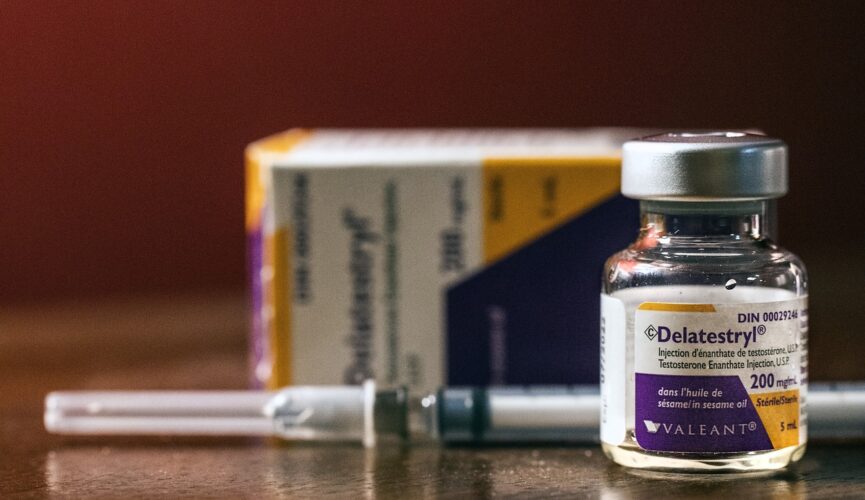


 One of the most prevalent misconceptions about CBD oil is that it gets you high, just like marijuana. However, this couldn’t be further from the truth. While both CBD and THC are compounds found in cannabis plants, they have vastly different effects on the body. THC (tetrahydrocannabinol), the psychoactive compound in marijuana, is responsible for producing that “high” feeling often associated with recreational use. On the other hand, CBD (cannabidiol) is non-psychoactive and does not produce any mind-altering effects.
One of the most prevalent misconceptions about CBD oil is that it gets you high, just like marijuana. However, this couldn’t be further from the truth. While both CBD and THC are compounds found in cannabis plants, they have vastly different effects on the body. THC (tetrahydrocannabinol), the psychoactive compound in marijuana, is responsible for producing that “high” feeling often associated with recreational use. On the other hand, CBD (cannabidiol) is non-psychoactive and does not produce any mind-altering effects. CBD oil has been growing in popularity over the past few years, with many people swearing for its potential health benefits. However, there are still some misconceptions surrounding
CBD oil has been growing in popularity over the past few years, with many people swearing for its potential health benefits. However, there are still some misconceptions surrounding 

 Inpatient rehab treatment is effective for various substance abuse disorders. Studies have shown that people who receive inpatient treatment are more likely to stay sober than those who do not receive treatment. Inpatient rehab programs provide a comprehensive recovery approach, including detoxification, individual and group therapy, and aftercare planning. This comprehensive approach is effective in helping people to achieve and maintain sobriety.
Inpatient rehab treatment is effective for various substance abuse disorders. Studies have shown that people who receive inpatient treatment are more likely to stay sober than those who do not receive treatment. Inpatient rehab programs provide a comprehensive recovery approach, including detoxification, individual and group therapy, and aftercare planning. This comprehensive approach is effective in helping people to achieve and maintain sobriety.
 If you have ever had a massage, you know that relaxation is one of the most immediate effects. Your muscles loosen, and your breathing deepens. It isn’t just a temporary feeling – research has shown that regular massage can actually help to improve your respiratory function. The same is true for chiropractic care. When your spine is aligned, and your muscles are relaxed, it is easier for your lungs to expand and take in oxygen.
If you have ever had a massage, you know that relaxation is one of the most immediate effects. Your muscles loosen, and your breathing deepens. It isn’t just a temporary feeling – research has shown that regular massage can actually help to improve your respiratory function. The same is true for chiropractic care. When your spine is aligned, and your muscles are relaxed, it is easier for your lungs to expand and take in oxygen. Aging is inevitable, but that doesn’t mean you have to live with the aches and pains that often come along with it. Regular chiropractic care can help to improve your range of motion and flexibility, making it easier for you to stay active as you age. One study found that older adults who received chiropractic care significantly improved their range of motion compared to those who did not.
Aging is inevitable, but that doesn’t mean you have to live with the aches and pains that often come along with it. Regular chiropractic care can help to improve your range of motion and flexibility, making it easier for you to stay active as you age. One study found that older adults who received chiropractic care significantly improved their range of motion compared to those who did not.
 One of the most common reasons that medical professionals recommend CBD is because it contains anti-inflammatory properties. These benefit patients with arthritis, joint pain, and even Crohn’s disease. CBD can help reduce inflammation throughout the body, relieving pain and discomfort. Patients who use CBD for these purposes often significantly reduce their symptoms. In fact, some even report that their symptoms disappear entirely. If you suffer from any chronic pain or inflammation, speak to your doctor about whether CBD could be right for you.
One of the most common reasons that medical professionals recommend CBD is because it contains anti-inflammatory properties. These benefit patients with arthritis, joint pain, and even Crohn’s disease. CBD can help reduce inflammation throughout the body, relieving pain and discomfort. Patients who use CBD for these purposes often significantly reduce their symptoms. In fact, some even report that their symptoms disappear entirely. If you suffer from any chronic pain or inflammation, speak to your doctor about whether CBD could be right for you. Lastly, CBD is often recommended to patients who suffer from nausea and vomiting. CBD can help to ease these symptoms by reducing inflammation in the digestive tract. This can be beneficial for patients undergoing chemotherapy or those who have difficulty keeping food down. Nausea and vomiting are common in people who are going through cancer treatment. But if you’re not undergoing treatment, these symptoms can be a sign of other underlying health conditions. You must speak to your doctor to rule out any other potential causes.
Lastly, CBD is often recommended to patients who suffer from nausea and vomiting. CBD can help to ease these symptoms by reducing inflammation in the digestive tract. This can be beneficial for patients undergoing chemotherapy or those who have difficulty keeping food down. Nausea and vomiting are common in people who are going through cancer treatment. But if you’re not undergoing treatment, these symptoms can be a sign of other underlying health conditions. You must speak to your doctor to rule out any other potential causes.


 Before you decide to buy steroids from an online shop, review their website first. Read through the review so that you can confirm if the sellers are genuine or not. This is also an excellent way to determine the quality of their products. Most customers give their honest opinion after consuming a product, so if you see many negative reviews, avoid buying from that particular supplier. Since steroids are not adequately regulated products, buying from the wrong suppliers might cause your body a lot of harm.
Before you decide to buy steroids from an online shop, review their website first. Read through the review so that you can confirm if the sellers are genuine or not. This is also an excellent way to determine the quality of their products. Most customers give their honest opinion after consuming a product, so if you see many negative reviews, avoid buying from that particular supplier. Since steroids are not adequately regulated products, buying from the wrong suppliers might cause your body a lot of harm. You should do enough research to get information about the steroids you are about to purchase. This is important, especially for new customers. If you are buying steroids for the first time, you need to research the different types available in the market then choose one that is appropriate for you. You can seek guidance from a doctor, physician, or even your fitness instructor. The type of steroids you buy will depend on the purpose of obtaining them. Most of these online shops also have customer support. You can get information from these customer care representatives about the steroids they have in stock.
You should do enough research to get information about the steroids you are about to purchase. This is important, especially for new customers. If you are buying steroids for the first time, you need to research the different types available in the market then choose one that is appropriate for you. You can seek guidance from a doctor, physician, or even your fitness instructor. The type of steroids you buy will depend on the purpose of obtaining them. Most of these online shops also have customer support. You can get information from these customer care representatives about the steroids they have in stock. Another important tip is to analyze the price of these
Another important tip is to analyze the price of these 
 Apart from visiting a rehab center, you should highly consider using cigarettes replacements. The main reason why people find it hard to stop smoking is nicotine. Nicotine is a highly addictive substance that is present in tobacco cigarettes. Other substances in cigarettes like tar and carbon monoxide are the ones that harm the body.
Apart from visiting a rehab center, you should highly consider using cigarettes replacements. The main reason why people find it hard to stop smoking is nicotine. Nicotine is a highly addictive substance that is present in tobacco cigarettes. Other substances in cigarettes like tar and carbon monoxide are the ones that harm the body.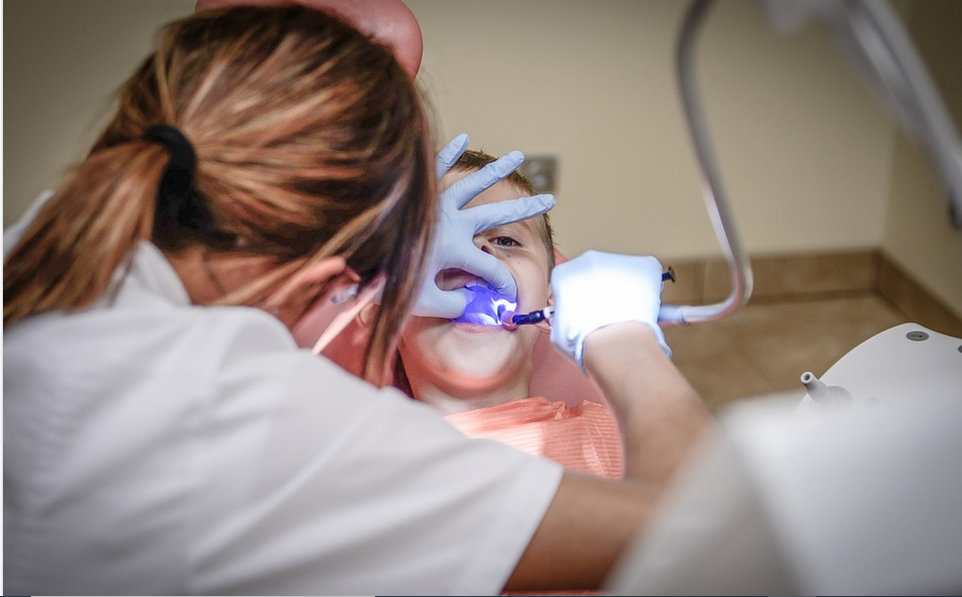
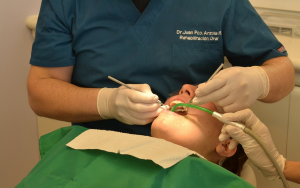 Excellent manual dexterity is necessary for a dentist. This is because the mouth is a relatively small space. The
Excellent manual dexterity is necessary for a dentist. This is because the mouth is a relatively small space. The  Good business sense is helpful to a dentist. It is because dentists start their private practice or work together to form a group of dentists in training. A lot of knowledge and skills are required to run a business. They should be able to train, hire, and oversee staff. Additionally, they need to control expenses, market, and meet all the legal requirements to ensure smooth operation.
Good business sense is helpful to a dentist. It is because dentists start their private practice or work together to form a group of dentists in training. A lot of knowledge and skills are required to run a business. They should be able to train, hire, and oversee staff. Additionally, they need to control expenses, market, and meet all the legal requirements to ensure smooth operation.
 This is probably one of those questions you will encounter in any forum where anabolic steroids are discussed. Ideally, anabolic steroids from Anavar Canada are artificially produced hormones that mimic the working of the male hormone, androgen. There are various steroid variants with different strengths. The most powerful variant is testosterone, which plays an integral in promoting muscle buildup and other masculine traits.
This is probably one of those questions you will encounter in any forum where anabolic steroids are discussed. Ideally, anabolic steroids from Anavar Canada are artificially produced hormones that mimic the working of the male hormone, androgen. There are various steroid variants with different strengths. The most powerful variant is testosterone, which plays an integral in promoting muscle buildup and other masculine traits. Despite being largely safe, steroid abuse can attract some negative effects. Abusers often report a range of effects ranging from mild acne to severe heart problems. It is also worth noting that some of the effects of abuse might show up later. If you are worried about the possibility of being a victim, it is worth noting that most of these effects are actually reversible. You have little or nothing to worry about if you stick to the prescribed limits.
Despite being largely safe, steroid abuse can attract some negative effects. Abusers often report a range of effects ranging from mild acne to severe heart problems. It is also worth noting that some of the effects of abuse might show up later. If you are worried about the possibility of being a victim, it is worth noting that most of these effects are actually reversible. You have little or nothing to worry about if you stick to the prescribed limits.
 Weight training builds your muscles and makes them bigger, so the muscle/fat ratio, especially if you eat correctly, will improve dramatically. The more strength you have, the less fat you tend to store. In sedentary and overweight people, it is even possible to gain muscle and lose fat simultaneously, something that is complicated in more advanced users.
Weight training builds your muscles and makes them bigger, so the muscle/fat ratio, especially if you eat correctly, will improve dramatically. The more strength you have, the less fat you tend to store. In sedentary and overweight people, it is even possible to gain muscle and lose fat simultaneously, something that is complicated in more advanced users. Another undoubted and phenomenal aspect of exercising with weights is that it is very positive for mental health, just for the fact that we see ourselves better. Also, doing weights on a routine basis is a very effective way to relieve stress and psychological problems like anxiety and depression.
Another undoubted and phenomenal aspect of exercising with weights is that it is very positive for mental health, just for the fact that we see ourselves better. Also, doing weights on a routine basis is a very effective way to relieve stress and psychological problems like anxiety and depression.
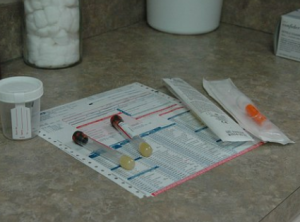 Moreover, it’s one of the few synthetic urine products in the market today that does not contain biocide. These are chemicals put into the products for preservation purposes. Most of the synthetic urine products contain biocides, and most labs might be testing for it to ensure that your sample is not fake urine. Therefore, without biocides, the clear choice sub solution stands a better chance of getting you through the test. Some synthetic urine, even with the right chemicals and submitted at the correct temperature, can make you fail the result as they may be tested for biocides.
Moreover, it’s one of the few synthetic urine products in the market today that does not contain biocide. These are chemicals put into the products for preservation purposes. Most of the synthetic urine products contain biocides, and most labs might be testing for it to ensure that your sample is not fake urine. Therefore, without biocides, the clear choice sub solution stands a better chance of getting you through the test. Some synthetic urine, even with the right chemicals and submitted at the correct temperature, can make you fail the result as they may be tested for biocides.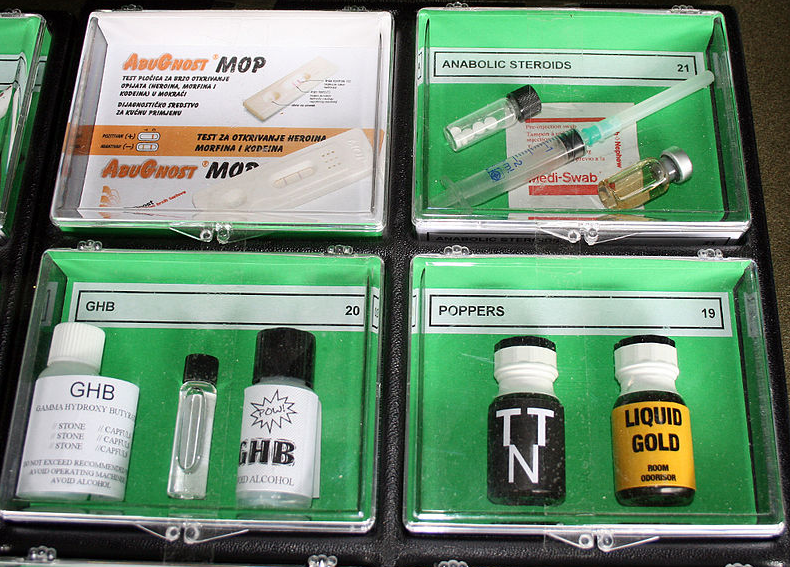




 One of the main uses of essential oil is for cleaning purposes. You can use them for cleaning the house and especially if you make your own cleaning agent. Lemon oil is great for cleaning the house floor and surfaces. Using essential oils for antibacterial purposes is also a common use.
One of the main uses of essential oil is for cleaning purposes. You can use them for cleaning the house and especially if you make your own cleaning agent. Lemon oil is great for cleaning the house floor and surfaces. Using essential oils for antibacterial purposes is also a common use.

 Reduces Weight
Reduces Weight This type of game is vital for muscle growth. Different muscle groups in your body are usually involved when playing baseball. Swinging, throwing, and catching the ball is essential for the development of strong arm muscles. Your calf muscles, glutes, and hamstrings are also engaged when squatting and running around. How about you play baseball to stay in good shape.
This type of game is vital for muscle growth. Different muscle groups in your body are usually involved when playing baseball. Swinging, throwing, and catching the ball is essential for the development of strong arm muscles. Your calf muscles, glutes, and hamstrings are also engaged when squatting and running around. How about you play baseball to stay in good shape.
 The benefits of using crutches are their ability to provide stability and make the base of support more extensive when walking, offload body weight from legs, and be adjustable according to height. However, when using crutches, your posture may be affected as you will tend to lean forward and it is possible to experience wrist, shoulder, elbow, and back pain if they are not adjusted correctly.
The benefits of using crutches are their ability to provide stability and make the base of support more extensive when walking, offload body weight from legs, and be adjustable according to height. However, when using crutches, your posture may be affected as you will tend to lean forward and it is possible to experience wrist, shoulder, elbow, and back pain if they are not adjusted correctly. Knee scooters are a fun and safe option to mobility devices. They are easy to maneuver, easy to use, safe to use, and fun to use. However, the only downside to using knee scooters is that there is a learning curve to using them.
Knee scooters are a fun and safe option to mobility devices. They are easy to maneuver, easy to use, safe to use, and fun to use. However, the only downside to using knee scooters is that there is a learning curve to using them.

 Toothaches
Toothaches




 One thing that you will love about cartridges is the fact that they are easy to use. The last thing you want is to start figuring out how to vape. You need to make sure that you understand vaping so that you can have an easy time. Since the cartridges are already loaded, you don’t have to worry about loading the tank and other things.
One thing that you will love about cartridges is the fact that they are easy to use. The last thing you want is to start figuring out how to vape. You need to make sure that you understand vaping so that you can have an easy time. Since the cartridges are already loaded, you don’t have to worry about loading the tank and other things.

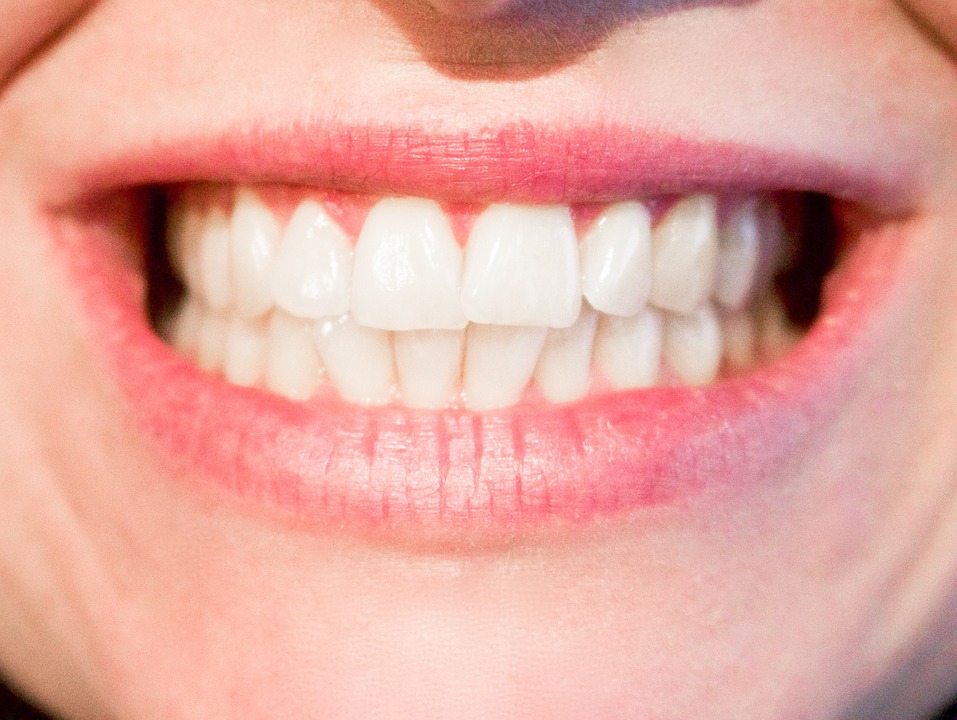
 Proper dentistry helps in avoiding any bone loss since it is meant to create proper architecture which brings along the healthy mouth and reduce the forces that come from the supporting structures. A well-designed dentistry gets rid or prevent any mouth diseases using great principals to minimize the load on your roots and bone, make biting and chewing forces close to your bone and roots. Also, the principal helps to improve the oral health, get rid of the undesired and destructive forces, and to spread the load to the roots and bone proportionally.
Proper dentistry helps in avoiding any bone loss since it is meant to create proper architecture which brings along the healthy mouth and reduce the forces that come from the supporting structures. A well-designed dentistry gets rid or prevent any mouth diseases using great principals to minimize the load on your roots and bone, make biting and chewing forces close to your bone and roots. Also, the principal helps to improve the oral health, get rid of the undesired and destructive forces, and to spread the load to the roots and bone proportionally.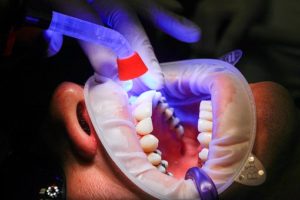 During the dentistry process, the dentist gets to search for any mouth diseases that might have occurred without your knowledge. In case the dentist finds any signs of a mouth disease, you will be given a good solution in preventing the mouth disease from happening or worsening. Hence, dentistry is one of the best ways of maintaining the health of your mouth.
During the dentistry process, the dentist gets to search for any mouth diseases that might have occurred without your knowledge. In case the dentist finds any signs of a mouth disease, you will be given a good solution in preventing the mouth disease from happening or worsening. Hence, dentistry is one of the best ways of maintaining the health of your mouth.
 Natural yogurt is one of the remedies of the yeast infection. Research conducted on natural yogurt found out that it has probiotics which are effective in neutralizing the Candida albicans fungus. Yogurt contains live bacteria that are referred to as Lactobacillus acidophilus.
Natural yogurt is one of the remedies of the yeast infection. Research conducted on natural yogurt found out that it has probiotics which are effective in neutralizing the Candida albicans fungus. Yogurt contains live bacteria that are referred to as Lactobacillus acidophilus. We are advised to
We are advised to 
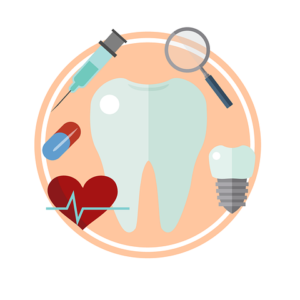
 What is the success rate of having an implant?
What is the success rate of having an implant?
 When gaining cheap road bikes, you should assemble at the principal part that is its frame. Acquire one that works well alongside you and need to coordinate budget. A lot of excellent bicycle frames are open which isn’t as pricey as those being utilized by racers yet with similar quality and strength. After that is finding the appropriate size that may coordinate your body construction and length. Cheap Road Bikes must not bargain solace and straightforwardness over price.
When gaining cheap road bikes, you should assemble at the principal part that is its frame. Acquire one that works well alongside you and need to coordinate budget. A lot of excellent bicycle frames are open which isn’t as pricey as those being utilized by racers yet with similar quality and strength. After that is finding the appropriate size that may coordinate your body construction and length. Cheap Road Bikes must not bargain solace and straightforwardness over price. While choosing a road bicycle, you need to consider many details. Be that as it may, everything begins with the frame. In spite of the fact that there are various materials and styles, your choice ought to be found on budget limitations and anything that can add to the speed or solace of the ride. The frame material of your new road bicycle is you need to think the vast majority of the money. The skeleton will bear your weight and decide how rapidly you will have the capacity to move in the city.
While choosing a road bicycle, you need to consider many details. Be that as it may, everything begins with the frame. In spite of the fact that there are various materials and styles, your choice ought to be found on budget limitations and anything that can add to the speed or solace of the ride. The frame material of your new road bicycle is you need to think the vast majority of the money. The skeleton will bear your weight and decide how rapidly you will have the capacity to move in the city.

 This takes no longer than 5 minutes and should be taken two times a day. The cream also serves as a moisturiser so you busts will certainly feel smoother and more attractive. The cream is not as reliable as the tablets so therefore it is recommended that you use the tablets and creams together. The bust improvement tablets and cream will collaborate to give you quicker and more efficient outcomes than if they were used individually.
This takes no longer than 5 minutes and should be taken two times a day. The cream also serves as a moisturiser so you busts will certainly feel smoother and more attractive. The cream is not as reliable as the tablets so therefore it is recommended that you use the tablets and creams together. The bust improvement tablets and cream will collaborate to give you quicker and more efficient outcomes than if they were used individually.

 It is essential to consider the type of material you want. This is because gloves come in a variety of materials. You need to know the various uses of the gloves before you buy them. The leather gloves are used for training. Though they are costly, they last for a long time. However, if you are an experienced boxer, you need to buy boxing gloves that are tied with laces.
It is essential to consider the type of material you want. This is because gloves come in a variety of materials. You need to know the various uses of the gloves before you buy them. The leather gloves are used for training. Though they are costly, they last for a long time. However, if you are an experienced boxer, you need to buy boxing gloves that are tied with laces. It is important to decide the amount of money you are ready and willing to spend on your gloves. You need to visit more than three shops for you to know the price range of these gloves. Ensure that you buy the best gloves at an affordable price. Avoid buying your gloves at a cheaper cost.
It is important to decide the amount of money you are ready and willing to spend on your gloves. You need to visit more than three shops for you to know the price range of these gloves. Ensure that you buy the best gloves at an affordable price. Avoid buying your gloves at a cheaper cost.
 weight loss training programs. Provided here are a few of the suggestions to make use of this training programs and to get faster outcomes.
weight loss training programs. Provided here are a few of the suggestions to make use of this training programs and to get faster outcomes. Likewise, there are multiple joint workouts that require relevance. During the exercising procedure, when you continue to grow stronger then there should be repeats of bodybuilding workouts. The more times you do, the more it would be better. The seconds in between each repeat needs to be 4-6 seconds. Care ought to be taken not to be sluggish and repeat the actions in regulated way.
Likewise, there are multiple joint workouts that require relevance. During the exercising procedure, when you continue to grow stronger then there should be repeats of bodybuilding workouts. The more times you do, the more it would be better. The seconds in between each repeat needs to be 4-6 seconds. Care ought to be taken not to be sluggish and repeat the actions in regulated way.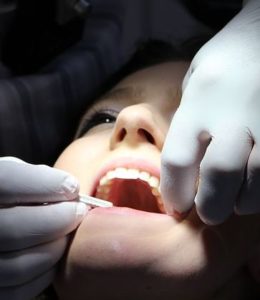
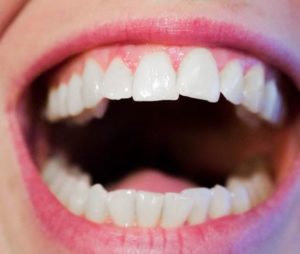 The primary concern with tooth replacement is how long the option is going to last. Well, some options do not last as long as others. Of all these options, dental implants last considerably long. The reason why implants last considerably is attributed to how they are installed. If you take care of them well enough, implants can last a lifetime.
The primary concern with tooth replacement is how long the option is going to last. Well, some options do not last as long as others. Of all these options, dental implants last considerably long. The reason why implants last considerably is attributed to how they are installed. If you take care of them well enough, implants can last a lifetime.
 have been licensed by the relevant authorities and that they meet all the requirements to do this job.
have been licensed by the relevant authorities and that they meet all the requirements to do this job. The relationship between the doctors and their patients can be used to determine the quality of services that can be expected from them. If their patients are happy with the services that they often get, it is an indication that the services are good. However, if you notice that they have lots of complaints, it is a clear indication that you should be looking for these services elsewhere. There are many clinics that offer these services and so, it does not make sense to stick with one that cannot guarantee you high-quality spine treatment services.
The relationship between the doctors and their patients can be used to determine the quality of services that can be expected from them. If their patients are happy with the services that they often get, it is an indication that the services are good. However, if you notice that they have lots of complaints, it is a clear indication that you should be looking for these services elsewhere. There are many clinics that offer these services and so, it does not make sense to stick with one that cannot guarantee you high-quality spine treatment services. Electronic cigarettes are battery-operated devices that can turn the e-liquid into smoke-like vapor. Although it is known that vaping does not involve the dangerous chemicals that are present in tobacco products, the e-liquid that is being utilized still contains nicotine. The good thing is, you will have the ability to control the level by choosing the vaping juice that you will use since they have different nicotine level or concentration.
Electronic cigarettes are battery-operated devices that can turn the e-liquid into smoke-like vapor. Although it is known that vaping does not involve the dangerous chemicals that are present in tobacco products, the e-liquid that is being utilized still contains nicotine. The good thing is, you will have the ability to control the level by choosing the vaping juice that you will use since they have different nicotine level or concentration. By switching from real cigarettes to electronic cigarettes, you will be able to get rid of the hazardous chemicals found in tobacco. But since vaping still involves nicotine, you will still have to help yourself so you can eventually stay away from all of them. One good thing that you can do is to start with the full or medium strength and then gradually switch to the minimum strength.
By switching from real cigarettes to electronic cigarettes, you will be able to get rid of the hazardous chemicals found in tobacco. But since vaping still involves nicotine, you will still have to help yourself so you can eventually stay away from all of them. One good thing that you can do is to start with the full or medium strength and then gradually switch to the minimum strength.
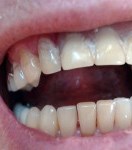
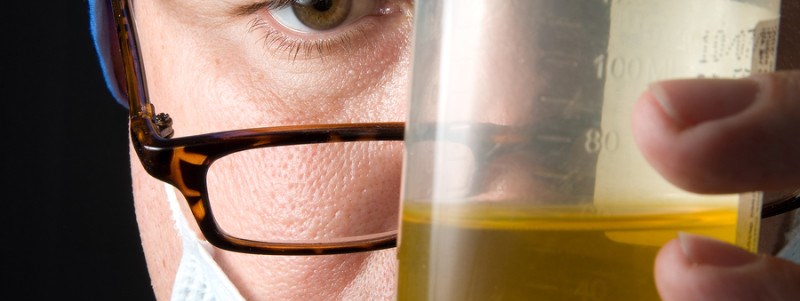
 might request you to have this test if they suspect that you might have a problem with alcohol or drug. If you show some signs of confusion and your behaviors seems strange, your emergency doctor might order for the test.
might request you to have this test if they suspect that you might have a problem with alcohol or drug. If you show some signs of confusion and your behaviors seems strange, your emergency doctor might order for the test. is taken
is taken
 muscle gain, then free weights are the only way to go. This is where you make use of weights that come on barbells or dumbbells, rather than weight machines.
muscle gain, then free weights are the only way to go. This is where you make use of weights that come on barbells or dumbbells, rather than weight machines.

 The lift chairs will be chairs that look precisely like an ordinary consistently utilized chair. The lift chairs are made of such fabrics as that is utilized as a part of whatever other kind of ordinary chair. However these are a touch touchy to certain kind of fabrics. However, the most critical part to be seen around a lift chair is the comfort it provides to the client. These chairs are even useful when utilized with stair lifts and bikes. They give a versatility and independence to the individual using this. The senior era makes full utilization of such a scientific help to mankind.
The lift chairs will be chairs that look precisely like an ordinary consistently utilized chair. The lift chairs are made of such fabrics as that is utilized as a part of whatever other kind of ordinary chair. However these are a touch touchy to certain kind of fabrics. However, the most critical part to be seen around a lift chair is the comfort it provides to the client. These chairs are even useful when utilized with stair lifts and bikes. They give a versatility and independence to the individual using this. The senior era makes full utilization of such a scientific help to mankind. The business is loaded with different kinds of lift chairs in effortlessly affordable rate structure. The typical lift chair is cheap. Be that as it may, the more complex the product is the more the costs rise. With the increased number of components requested by the client in the lift chair the sum they are obliged to pay likewise enhances. These chairs are additionally highlighted by extremely polished and fashionable designs with a showcase of an assortment of hues. These innovatively designed chairs resemble an ordinary chair from the outside. However the intricate instrument continues to mitigate clients day and night.
The business is loaded with different kinds of lift chairs in effortlessly affordable rate structure. The typical lift chair is cheap. Be that as it may, the more complex the product is the more the costs rise. With the increased number of components requested by the client in the lift chair the sum they are obliged to pay likewise enhances. These chairs are additionally highlighted by extremely polished and fashionable designs with a showcase of an assortment of hues. These innovatively designed chairs resemble an ordinary chair from the outside. However the intricate instrument continues to mitigate clients day and night.
 ater years, they will still maintain their same lively character but it is when they begin to walk with a tense leg that something is not right and starts going downhill. Pet dogs and cats, just like people, have the tendency to experience dog arthritis or cat arthritis in their later years. In extreme cases, it can leave them sitting all day long when they ought to be up and about.
ater years, they will still maintain their same lively character but it is when they begin to walk with a tense leg that something is not right and starts going downhill. Pet dogs and cats, just like people, have the tendency to experience dog arthritis or cat arthritis in their later years. In extreme cases, it can leave them sitting all day long when they ought to be up and about. Your Local Drug Store or Online
Your Local Drug Store or Online
 life.
life. If your views on your own are positive, the possibility of accomplishing your desired objective is greater than if your views are unfavorable, for negative thoughts just create obstructions in achieving your goals. So, be positive as positive thoughts constantly take you one step ahead towards your objective of losing weight.
If your views on your own are positive, the possibility of accomplishing your desired objective is greater than if your views are unfavorable, for negative thoughts just create obstructions in achieving your goals. So, be positive as positive thoughts constantly take you one step ahead towards your objective of losing weight.

 after a shoulder injury or after a severe trauma to the shoulder muscles. Some of the other health conditions such as diabetes, aging, and heart diseases can cause frozen shoulder symptoms.
after a shoulder injury or after a severe trauma to the shoulder muscles. Some of the other health conditions such as diabetes, aging, and heart diseases can cause frozen shoulder symptoms. excellent method for treating Frozen shoulder. This can be used daily from home at your convenience. It will surely help to speed up the healing process when you use it daily. An ultrasound machine to be used from home would be 1Mhz ultrasound waves. You can find an FDA-approved device that is quality measured, with a one year of warranty offered to the device.The ultrasound commonly home used, and it is effective just as the machines used by Chiropractors. So the Frozen shoulder condition can now be treated at the comfort of your home with a portable ultrasound machine.
excellent method for treating Frozen shoulder. This can be used daily from home at your convenience. It will surely help to speed up the healing process when you use it daily. An ultrasound machine to be used from home would be 1Mhz ultrasound waves. You can find an FDA-approved device that is quality measured, with a one year of warranty offered to the device.The ultrasound commonly home used, and it is effective just as the machines used by Chiropractors. So the Frozen shoulder condition can now be treated at the comfort of your home with a portable ultrasound machine.



 waiting for your next meal. Managing your hunger throughout the day is essential to proper consuming and keeping blood glucose levels. So, how do you identify what to eat and when should you, in fact, consume your snacks?
waiting for your next meal. Managing your hunger throughout the day is essential to proper consuming and keeping blood glucose levels. So, how do you identify what to eat and when should you, in fact, consume your snacks? Nuts and seeds are a magnificent way to snack. They are rich in protein but beware because the calories can build up quickly if you do not balance them. Stick to healthy nuts like horse chestnuts.
Nuts and seeds are a magnificent way to snack. They are rich in protein but beware because the calories can build up quickly if you do not balance them. Stick to healthy nuts like horse chestnuts.
 membership card when you show up at the dental office. These discounted dental plans are not costly insurance plans; they are discount programs that can save you a substantial amount of money on your dental visits.
membership card when you show up at the dental office. These discounted dental plans are not costly insurance plans; they are discount programs that can save you a substantial amount of money on your dental visits. meaning that if you are not happy with the offerings or services, you can get a refund within 30 days. How perfect is that?
meaning that if you are not happy with the offerings or services, you can get a refund within 30 days. How perfect is that?
 hours a day. The first rule of prep work for an efficient meditation is to get the body ready for a long-term seated posture. The mind can not be relaxed and unless the body is too. Many monks and meditation professionals accomplish this bodily preparation through practice, yoga, and mental methods. The rest of us can accomplish prolonged, long duration sitting convenience through the use of ergonomics.
hours a day. The first rule of prep work for an efficient meditation is to get the body ready for a long-term seated posture. The mind can not be relaxed and unless the body is too. Many monks and meditation professionals accomplish this bodily preparation through practice, yoga, and mental methods. The rest of us can accomplish prolonged, long duration sitting convenience through the use of ergonomics. structure needed for extended work sessions, the wise design of the ergonomic kneeling chair effectively conforms to among the earliest yoga poses: diamond posture.
structure needed for extended work sessions, the wise design of the ergonomic kneeling chair effectively conforms to among the earliest yoga poses: diamond posture.
 supplement that will work for you.
supplement that will work for you.
 Losing essential vitamins or minerals cannot be blamed on weight loss supplements however. When you are taking in fewer calories than normal, you have to pay attention to your diet to ensure it is a healthy one. If you are eating plenty of Australian fruits and vegetables, you should have little to worry about, and even less to be concerned about if you are including nuts and a source of protein in your diet as well.
Losing essential vitamins or minerals cannot be blamed on weight loss supplements however. When you are taking in fewer calories than normal, you have to pay attention to your diet to ensure it is a healthy one. If you are eating plenty of Australian fruits and vegetables, you should have little to worry about, and even less to be concerned about if you are including nuts and a source of protein in your diet as well.
 part in. Steroids are utilized to increase muscle mass and also enhance athletic performance. These are some of the reasons why individuals take steroids. There are also some that aren’t involved in sports, however, take steroids mostly for appearances. With the advantages of anabolics, there are also repercussions from using steroids.
part in. Steroids are utilized to increase muscle mass and also enhance athletic performance. These are some of the reasons why individuals take steroids. There are also some that aren’t involved in sports, however, take steroids mostly for appearances. With the advantages of anabolics, there are also repercussions from using steroids. reduced libido, liver damage, roid rage, enhanced aggressiveness, male-pattern baldness, high cholesterol, hypertension, impotence, gynecomastia(development of bust tissue in males) and state of mind swings. Men who are also prone to baldness increase their rate of hair loss by taking steroids. You may likewise totally stop the natural production of hormones such as testosterone with using anabolics. Anabolic steroids also have been linked to cardio problems, and might cause cardiovascular disease with the long-term use of drugs. Anabolics may
reduced libido, liver damage, roid rage, enhanced aggressiveness, male-pattern baldness, high cholesterol, hypertension, impotence, gynecomastia(development of bust tissue in males) and state of mind swings. Men who are also prone to baldness increase their rate of hair loss by taking steroids. You may likewise totally stop the natural production of hormones such as testosterone with using anabolics. Anabolic steroids also have been linked to cardio problems, and might cause cardiovascular disease with the long-term use of drugs. Anabolics may  likewise completely stunt your bone growth by triggering your development plates to close. There is likewise a possibility of male prostate augmentation. Steroids are connected to kidney condition due to the increased work production of the purification and excretion systems of the body.
likewise completely stunt your bone growth by triggering your development plates to close. There is likewise a possibility of male prostate augmentation. Steroids are connected to kidney condition due to the increased work production of the purification and excretion systems of the body.
 enhances if you consume fatty meats and processed meat products, such as sandwich meats, sausages, and hotdogs. No matter what factor prompted you to explore the vegan way of life, your health should be your main concern. You can be healthy while eating just a plant-based diet plan. Today’s vegan fare includes many more alternatives than just a few years earlier. You can find meat substitutes made just from plant items.
enhances if you consume fatty meats and processed meat products, such as sandwich meats, sausages, and hotdogs. No matter what factor prompted you to explore the vegan way of life, your health should be your main concern. You can be healthy while eating just a plant-based diet plan. Today’s vegan fare includes many more alternatives than just a few years earlier. You can find meat substitutes made just from plant items. fiber. Veggies and fruits contain all the vitamins and vital micronutrient you require for a healthy body. Raspberries, strawberries, cherries, blackberries, and blueberries include crucial anti-oxidants that eliminate dangerous free radicals from your cells. Free radicals are a natural result of oxidation in your cells but can result in cell damage. A diet rich in plant-based antioxidants can reduce your danger of cell damage and potential cancers.
fiber. Veggies and fruits contain all the vitamins and vital micronutrient you require for a healthy body. Raspberries, strawberries, cherries, blackberries, and blueberries include crucial anti-oxidants that eliminate dangerous free radicals from your cells. Free radicals are a natural result of oxidation in your cells but can result in cell damage. A diet rich in plant-based antioxidants can reduce your danger of cell damage and potential cancers.
 As with other items, there are certain benefits and drawbacks when you make use of such a weight-loss item. Therefore, before spending money, you should do some research on advantages and disadvantages as well as its many chemical parts, as this will definitely assist you in making an informed decision.
As with other items, there are certain benefits and drawbacks when you make use of such a weight-loss item. Therefore, before spending money, you should do some research on advantages and disadvantages as well as its many chemical parts, as this will definitely assist you in making an informed decision. taken Phen375 has specified enhanced sexual libido that is most an included bonus!
taken Phen375 has specified enhanced sexual libido that is most an included bonus!
 Fat Burning
Fat Burning enhance the body’s manufacturing of serotonin, a bodily hormone charged with supporting mood and sleep. According to research carried out by a university in Texas, Garcinia Cambogia extract might enhance the serotonin production in a person by around four tenths, triggering appetite-suppressing at the very same time.
enhance the body’s manufacturing of serotonin, a bodily hormone charged with supporting mood and sleep. According to research carried out by a university in Texas, Garcinia Cambogia extract might enhance the serotonin production in a person by around four tenths, triggering appetite-suppressing at the very same time.

 By suppressing appetite:
By suppressing appetite:
 Wholegrain Foods: Whole grain foods are excellent brain stimulators because they contain big proportions of folic acid. They can also enhance the blood flow to the brain. Each organ of the body depends on blood circulation and oxygenation, especially the brain. Wholegrain breads and cereals are rich in vitamin B6, a vitamin especially important for the brain. Wheat germ also contains thiamine, which is known to enhance memory.
Wholegrain Foods: Whole grain foods are excellent brain stimulators because they contain big proportions of folic acid. They can also enhance the blood flow to the brain. Each organ of the body depends on blood circulation and oxygenation, especially the brain. Wholegrain breads and cereals are rich in vitamin B6, a vitamin especially important for the brain. Wheat germ also contains thiamine, which is known to enhance memory. Berries: Berries, particularly the darker berries like blueberries and blackberries, are known to be good brain foods. They enhance and protect the machinery of the nerve cells of the brain; that leads to improvement of memory and cognitive skills. They are also advantageous in avoiding Alzheimer’s condition and dementia occurrence later in life. Blueberries have ellagic acid, a phytochemical known to avoid damage of cells. Strawberries contain anti-oxidants that improve brain cell communication. The anthocyanins in blackberries are also terrific in fighting degenerative diseases of the brain.
Berries: Berries, particularly the darker berries like blueberries and blackberries, are known to be good brain foods. They enhance and protect the machinery of the nerve cells of the brain; that leads to improvement of memory and cognitive skills. They are also advantageous in avoiding Alzheimer’s condition and dementia occurrence later in life. Blueberries have ellagic acid, a phytochemical known to avoid damage of cells. Strawberries contain anti-oxidants that improve brain cell communication. The anthocyanins in blackberries are also terrific in fighting degenerative diseases of the brain.
 regular eating practices. While this is not true for all diet plans, it is especially true when it concerns rapid weight loss and fast weight loss diet plans.
regular eating practices. While this is not true for all diet plans, it is especially true when it concerns rapid weight loss and fast weight loss diet plans.